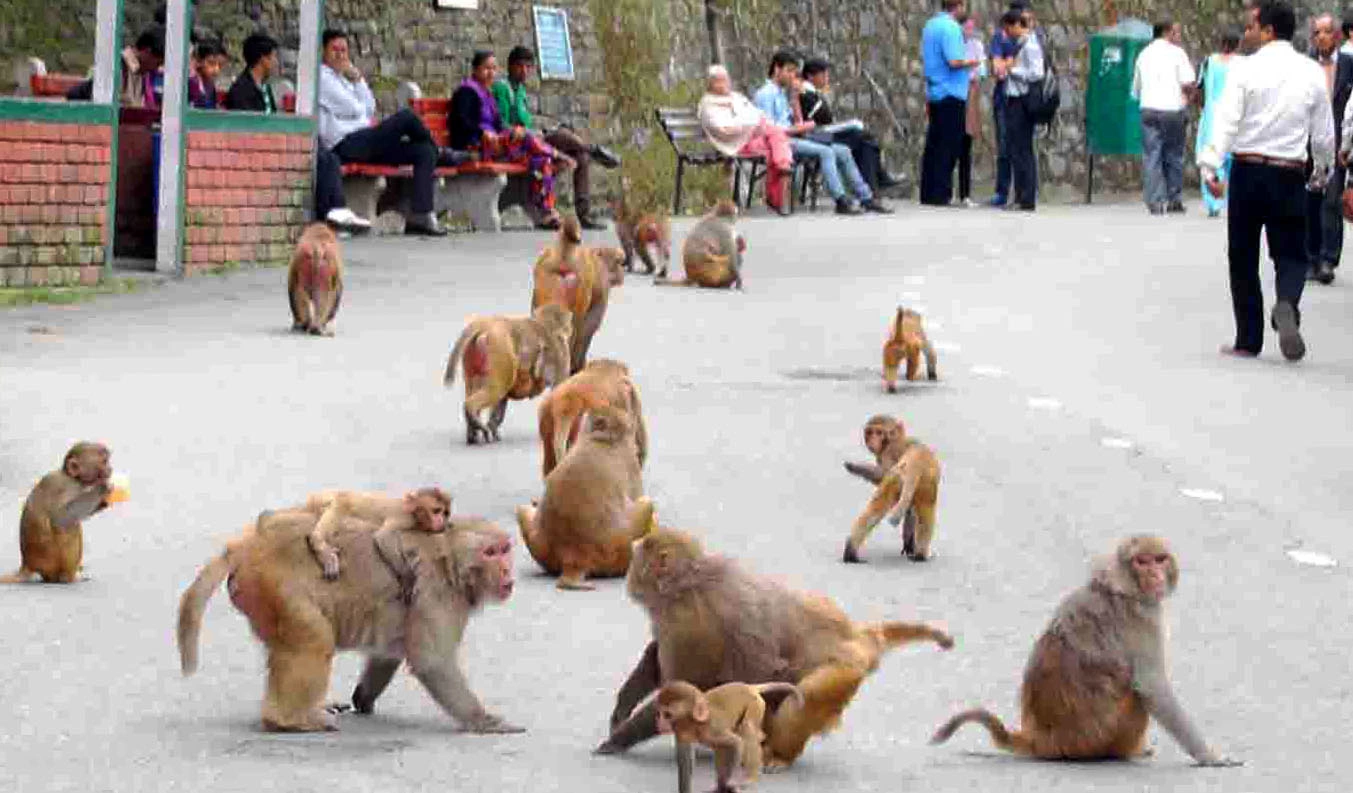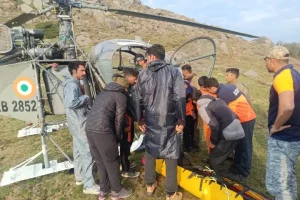Is this really good news for Himachal Pradesh or a concern — one needs to view it in real perspective but somehow also fall-out of man-animal conflict in the Himalayan hills.
For a long time, monkey menace in Shimla—the state capital and rural Himachal has made national headlines but now comes the surprise.
Monkey population in Himachal Pradesh is down almost by 50 percent in the past one decade from 3.50 lakh in 2011 to 1.36 lakhs as per latest data compiled by the state’s wildlife wing in the forest department.
“This is quite a significant and notable decline in the population of rhesus macaque monkeys in the state. Primarily it’s the result of a sustained sterilisation drive started by the wildlife department to effectively deal with growing monkey menace in the state” reveals Rajeev Kumar, Principal Conservator of Forests (Wildlife).
Kumar says that around 1.76 lakh monkeys both male and female have been sterilised so far in seven centres started by the government in 2010 following High Court orders asking the government to find a viable solution to the growing monkey problem in the urban towns like Shimla and villages—where monkey troops have played havoc with agriculture crops.
The issue also remained hot in state assembly polls in 2007 as farmers in half of the Himachal Pradesh district abandoned their cultivation as protests and demonstrations occurred all over the place.
Rajeev Kumar says though the Ministry of Environment, Forests and climate change had also declared monkeys “vermin” in municipal limits of Shimla thus allowing the individuals to kill monkeys but no monkey was killed as such even though the ministry also had extended the notification for six months in March 2017.
Once the monkeys are put in the vermin category, anyone can kill or shoot the monkeys to prevent crop depredation and conflict with humans, and loss of property. In 2016, the Himachal agriculture department reported a crop loss of ₹184.28 crore due to wild animals, particularly monkeys.
Similar orders were also issued for 50-odd monkey hot spots in the rural tehsils by the MoEF ,New Delhi.
In 2019-20 the notifications lapsed and a fresh request sent by the state government for a fresh notification was turned down as the Forest department could not produce any data on “vermin” monkeys having been killed by farmers or else.
As per the 2020 census, Himachal Pradesh has a monkey population of 1, 36,443.
The forest department also attributes the reduction in monkey population to better management of feeding points of monkeys like garbage dumps and mass awareness . The forest department has seven monkey sterilisation centres in Shimla, Hamirpur, Kangra, Una, Chamba, Sirmaur and Mandi, besides mobile units.
President of Himachal Kisan Sabha and former IFS Dr Kuldeep Singh Tanwar, however, says the sterilisation programme may have some impact on reduction of the monkey population but it’s not the only way-out.
“I believe culling is the only solution and an internationally acknowledged concept where animals exceeding the carrying capacity of the area can be culled in a scientific manner. The people’s participation is another key factor which the forest department continues to ignore in the entire programme to tackle the menace” he says .
Tanwar quotes an example of Sirmaur district where farmers took upon themselves to cull the rogue monkeys. This has significantly resulted in solving 80 to 90 percent of the problem.
Ramesh Verma, Kisan Sabha president (Sirmaur) confirming this says “we did cull off the monkeys as today people are feeling much relieved. But the forest department sometime creates problem by translocating monkeys from urban towns to this area”
But environmentalists feel discriminate killing of the monkeys is not good for the Himalayan biodiversity though it’s an admitted fact that when encounters between humans and wildlife lead to negative results, such as loss of property, livelihoods, and even life, animals bear the brunt.
Also Read: Unschooled in waste disposal, tourists leave behind mountains of garbage in Manali




















